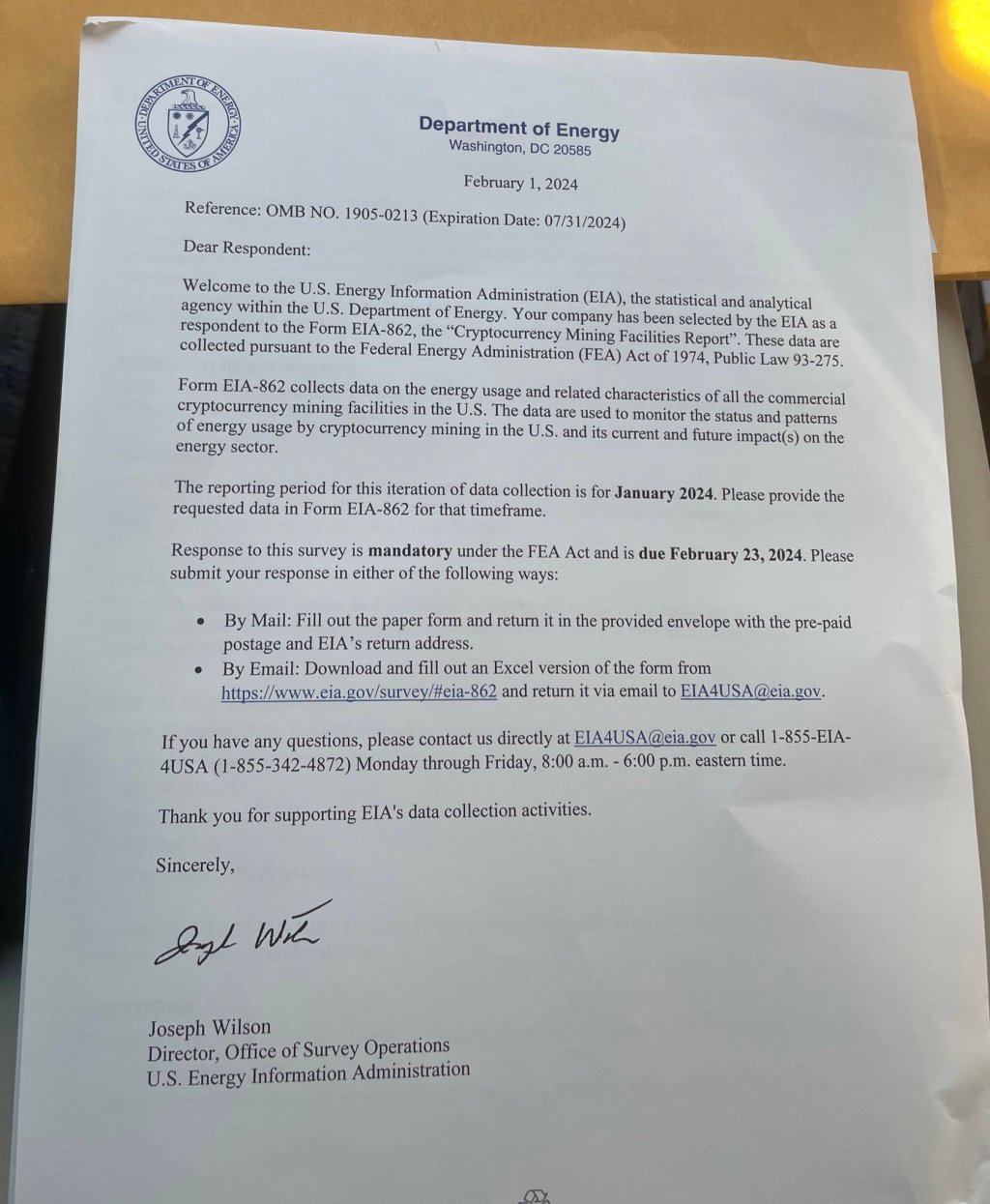[ad_1]
Dennis Porter, the CEO of a non-profit, Satoshi Action Fund, has notified the crypto community that Bitcoin miners across the United States reportedly face pressure from the Energy Information Administration (EIA) after being sent letters requiring them to surrender sensitive data.
EIA Wants Bitcoin Miners To Submit Sensitive Data
In a post on February 14, Porter claims that, in a new order, the EIA now wants Bitcoin and crypto miners to comply with their directive within ten days or face heavy fines exceeding $10,000 per day. When writing, and by the time Porter shared the post, it was unclear how many miners had received these demand letters.

However, this development is amid concerns from the United States government about the potential environmental impact of Bitcoin mining. Porter now reveals that the EIA, acting in collaboration with the federal government and citing emergency powers, is seeking data on miners’ locations, energy consumption, and suppliers.
The activist strongly criticized the EIA’s actions, saying that this new directive is not how the United States government “should interact with a new and promising industry.” Porter then highlights the innovative potential of Bitcoin and crypto mining in general. In previous statements, crypto mining supporters have said the practice would reshape energy management, production, and even how power is transmitted in the United States; it is a stance that the CEO also mentions.
NGO CEO To Fight Back, Claims Mining Can Stabilize Electric Grid
While rejecting the EIA’s directive, Porter said Bitcoin miners in the country are “eager to collaborate.” Given this chance, miners, the CEO continues, can show how the technology has positively impacted the electric grid and its potential impact on the economy and environment.
In November 2023, the Satoshi Action Fund, in partnership with Brad Jones, the former CEO of the Electric Reliability Council of Texas (ERCOT), released a paper showing how Bitcoin mining is an effective methane capture tool. The impact of Methane on the ozone layer is well documented and shown to be harmful.
So far, the Satoshi Action Fund plans to fight back against the EIA’s demands, but details remain undisclosed. However, before this, they are surveying to understand how Bitcoin miners are helping stabilize the electric grid in the United States.
In early February, Lee Bratcher, the Texas Blockchain Council President, and Perianne Boring, the CEO of the Chamber of Digital Commerce, said the EIA should focus on improving the outdated energy infrastructure instead of targeting private companies. They also criticized the crackdown on Bitcoin mining, calling it a politically motivated move and an abuse of power.
Feature image from Canva, chart from TradingView
[ad_2]
Source link



